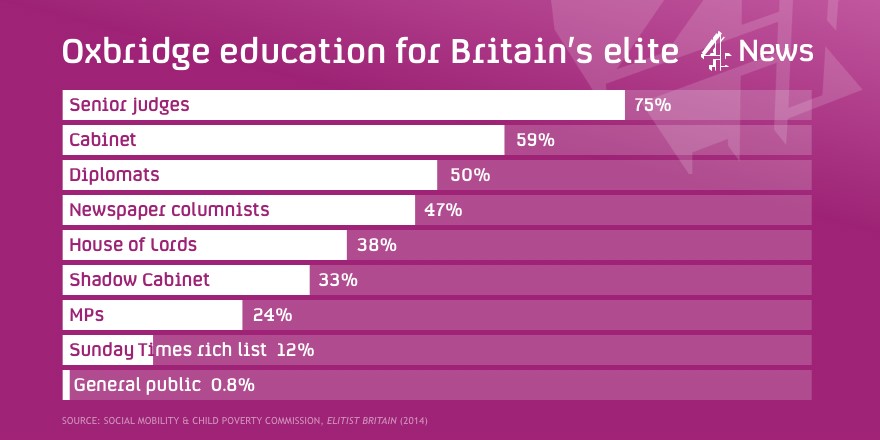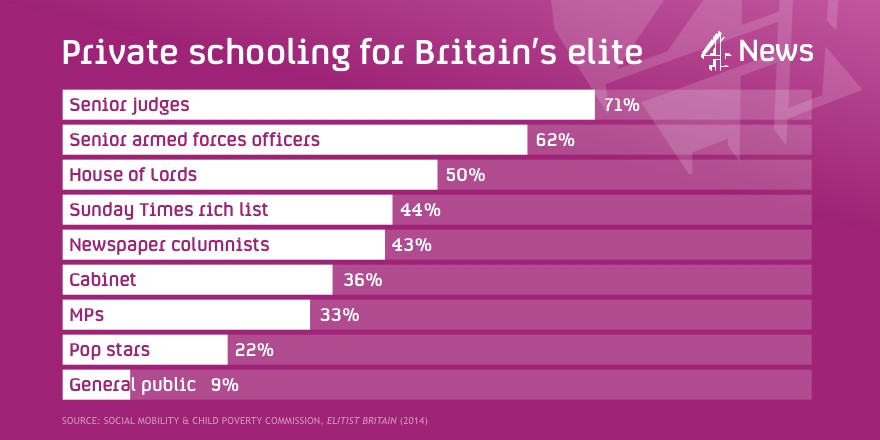Who runs Britain? Probably not the likes of you, says report
Britain is “deeply elitist” and top roles in society are dominated by Oxbridge graduates, according to a report.

The Social Mobility and Child Poverty Commission says many of the country’s judges, politicians, sports stars and journalists attended fee-paying schools before going on to study at Oxford or Cambridge University.
The report says that the lack of diversity in top jobs means that many public institutions are not representative of the British public they aim to serve, and the people running them may not understand day to day problems facing people from different backgrounds.

Alan Milburn, chairman of the commission, said UK institutions are an “elite cosy club” and the number of privately educated people in senior public roles had led to a “closed shop at the top”.
Mr Milburn added: “Locking out a diversity of talents and experiences makes Britain’s leading institutions less informed, less representative and, ultimately, less credible than they should be.
“Where institutions rely on too narrow a range of people from too narrow a range of backgrounds with too narrow a range of experiences they risk behaving in ways and focussing on issues that are of salience only to a minority but not the majority in society.”
The report listed 4,000 people in top jobs in the fields such as law, media and politics. It found that 71 per cent of senior judges, 62 per cent of senior armed forces officers, 35 per cent of national rugby teams and 26 per cent of BBC executives attended a fee-paying school.
Nationally, around 7 per cent of the UK population attended a private school, the study says.

The report is mainly analysis, but contains some recommendations. It encourages firms to advertise work experience and pay interns. The report also encourages employers to build relationships with schools on mentoring and careers advice.
Lee Elliot Major, director of policy and development at the Sutton Trust, said: “We welcome the commission’s recommendations, many of which we are addressing through our programmes that focus on increasing access to top universities and professions including law, banking and medicine.
“Whilst we are making progress with the young people we work with, it’s clear that more needs to be done at government level to address the issue of low social mobility.”
Shadow education secretary Tristram Hunt said government policy was failing young, working class people.
“Cameron’s schools policy has done away with work experience and face-to-face careers advice – so important for young people – whilst ignoring the important role of children’s character development in schools,” he said.




